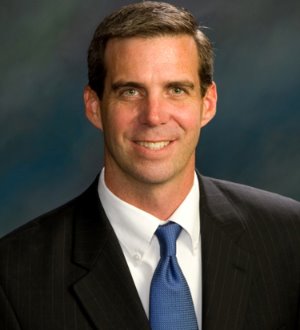Worksite enforcement is likely to take center stage in 2018. Last October, the acting director of Immigration and Customs Enforcement (ICE), Tom Homan, announced plans to increase I-9 audits and investigations in the upcoming year. Under applicable law, employers are required to complete a Form I-9, Employment Eligibility Verification, for each new hire. According to Homan, ICE plans to quintuple I-9 audits and investigations in 2018. He added, “Not only are we going to prosecute the employers that hire illegal workers, we’re going to detain and remove the illegal alien workers.”[1]
In light of this anticipated ramp up in I-9 audits and investigations, employers should pause to ensure their employment eligibility programs are in proper order. The Immigration and Nationality Act (INA) states that “[i]t is unlawful for a person or other entity … to hire … for employment in the United States an alien knowing the alien is an unauthorized alien … with respect to such employment.”[2] In addition, the INA emphasizes that “[i]t is unlawful for a person or other entity, after hiring an alien for employment… , to continue to employ the alien in the United States knowing the alien is (or has become) an unauthorized alien with respect to such employment.”[3]
In other words, employers need to confirm the employees they are onboarding hold proper documentation to work legally in the United States, and they need to ensure that their existing workforces continue to hold employment authorization.
For nearly 10 years, ICE has had in place a comprehensive worksite enforcement strategy that is designed to target both workers and employers for criminal charges.[4] The strategy includes the use of traditional tools of criminal investigation, such as “confidential sources and cooperating witnesses, introduction to undercover agents, consensual and nonconsensual intercepts, and Form I-9 audits.”[5] In the absence of criminal prosecution, the strategy will focus on civil fines and debarment. Nonetheless, ICE maintains that “[o]ftentimes, Form I-9 inspections [will be] an effective means of furthering criminal investigations.”[6] Although prior administrations have relied upon and used this strategy over the past decade, the Trump administration plans to pursue it with renewed vigor.
Some employers appear to misunderstand the scope of their potential exposure for immigration-related violations. In many cases, a civil audit represents the beginning of an employer’s problems. ICE, of course, takes the view that double jeopardy does not attach to civil fine proceedings, making it possible for the agency to pursue both civil sanctions and criminal prosecutions against the same employer.
In the context of civil audits, employers have been subjected to increasingly large fines.
Civil fines will typically arise over substantive errors during the I-9 verification process (e.g., failure to timely or properly complete the Form I-9, etc.). In some cases, those fines have reached several million dollars. Consequently, employers would be wise to review their Forms I-9 and ensure that they have been properly completed. Employers may also want to consider enrolling in E-Verify (a program that checks the information on a Form I-9 against databases operated by the Department of Homeland Security and the Social Security Administration). While E-Verify is not required for most employers (with the exception of certain federal contractors and employers in some states, such as Arizona), the program allows companies to enjoy the presumption of a legal workforce when it comes to I-9 audits. Even so, E-Verify does not offer a safe haven or immunity for employers. Indeed, a number of E-Verify employers have been hit with fines for failing to have compliant Forms I-9.
In the context of criminal investigations, employers face fines, forfeitures, and even prison time (for those involved in the criminal conduct). Criminal liability will typically arise in situations in which employers are on notice that the employees they are hiring (or have already hired) are working in this country in violation of law. While these types of cases can lead to extreme financial burdens (with one case recently settling for $95 million), they can also lead to potential prison time for anybody involved in the criminal activity.
The days of turning a blind eye to immigration-related problems in the workplace have thus passed. Based on ICE’s stated intent to increase I-9 audits and investigations, employers will want to work with competent legal counsel to ensure that they are in compliance (or taking steps to get into compliance) with the law. Those who continue to play the odds in this area very well may run into serious legal trouble.
---------------
Chris Thomas is the managing shareholder of the immigration practice for the Denver office of Ogletree Deakins. With over 20 years of experience in employment-based immigration, he has extensive experience in guiding employers through nonimmigrant and immigrant visa processes. He also represents employers in their efforts to be in compliance under applicable immigration law and in audits and investigations involving outside regulators.
---------------
[1]. See www.cnn.com/2017/10/17/politics/ice-crackdown-workplaces/index.html.
[2]. INA § 274A(a)(1)(A).
[3]. INA § 274A(a)(2).
[4]. See Memo, Forman, Director, Office of Investigations, ICE, “Worksite Enforcement Strategy” (April 30, 2009), directing field offices to “use administrative tools to advance criminal cases.”
[5]. Id. at 2.
[6]. ICE, Guide to Administrative Form I-9 Inspections and Civil Monetary Penalties (Nov. 5, 2008).

















